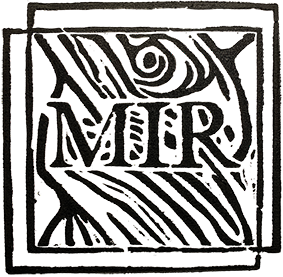
MIR coordinates and makes available scholarly and practical resources drawn from across and beyond the UC system, providing cross-campus opportunities to gather and to participate in collaborative inquiry.
Our name gestures towards Marx’s later writings on the Russian mir, in which he clarified and transformed his thinking on historical development. Hinged on the significance of small, communal landholdings, it led to a decisive break with linear, developmental theories of history, along with a greater attention to matters of ecology, indigenous life, gender, and a communism not premised on Western European trajectories. We hold these in mind, and the possibility for change and new discovery, as we consider historical materialist method and its possible objects of study. For us, Marxism is always “in transition” toward engaging with the broad and shifting horizons of historical actuality.
MIR aims to multiply venues for conversation between the humanities and social sciences about qualitative research methods and theory. Demanding that conceptualization be grounded in empirical actualities, historical materialist research exerts pressure on humanities’ methods, opening them to concerns preceding and overflowing representation. Yet insofar as close reading, abstraction, and synthetic thought are essential elements of Marxist theorizing, they indicate the value and even necessity of humanistic skills to the meaningful identification of real-world objects of research.
Marxism in its multiple variants offers an interdisciplinary mode of engagement, comprising forms of intellection associated with philosophy, literary theory, aesthetics, history, sociology, geography, and politics. As theory, Marxism carries the potential to be an expansive medium of communication between disciplines; as a methodological framework, it lends itself to the formulation of problems that might only be solved by collaboration across disciplines.
Designed to be a lasting network aimed particularly toward support of graduate student researchers and early-career faculty, MIR offers as a major program objective an annual free Summer Seminar for UC graduate students, led by faculty from the UC system and beyond. For more information on the summer seminar and how to apply for the next meeting, go here.
For the people involved with MIR’s Faculty Hub and Advisory Board, see here.
